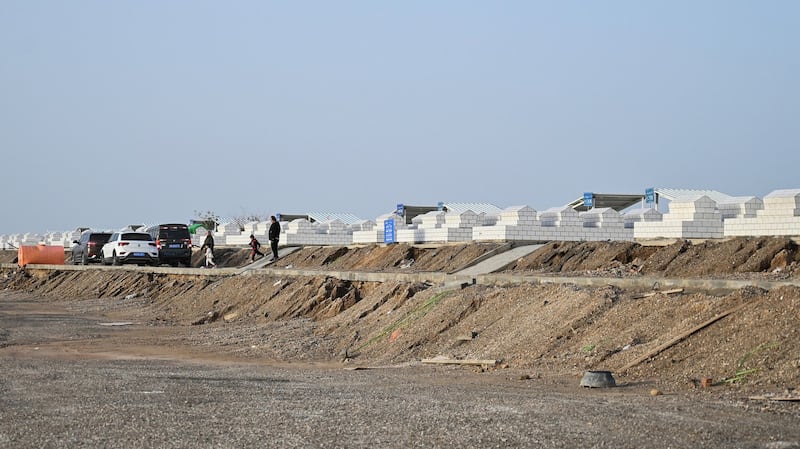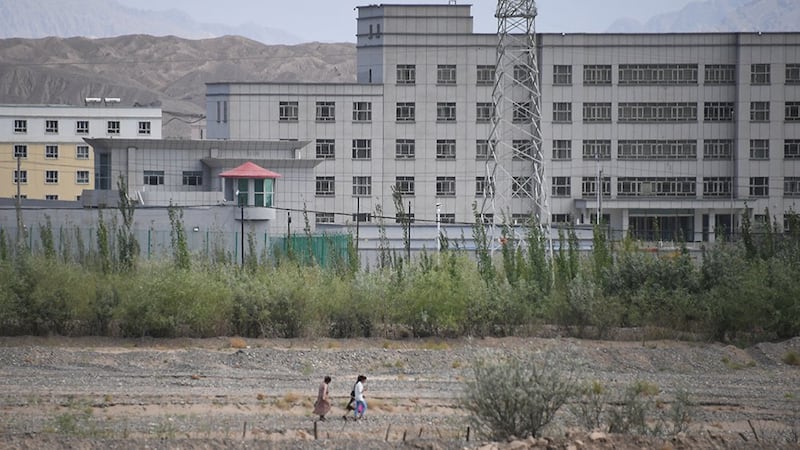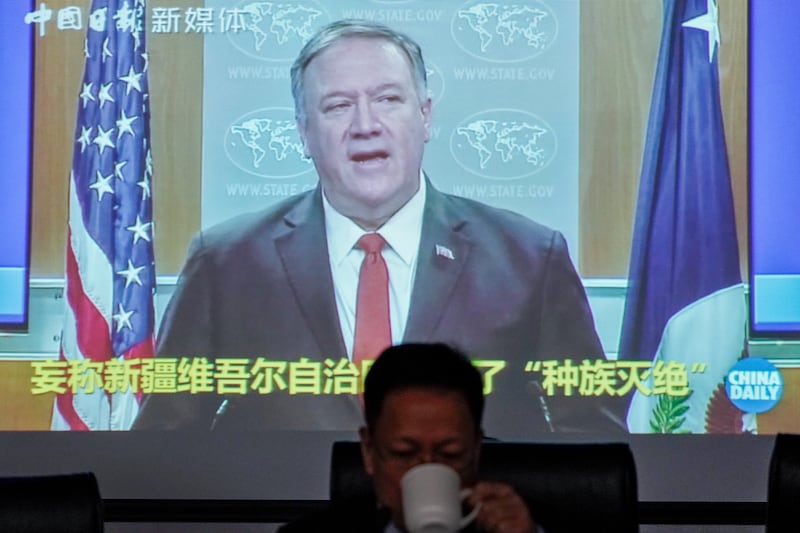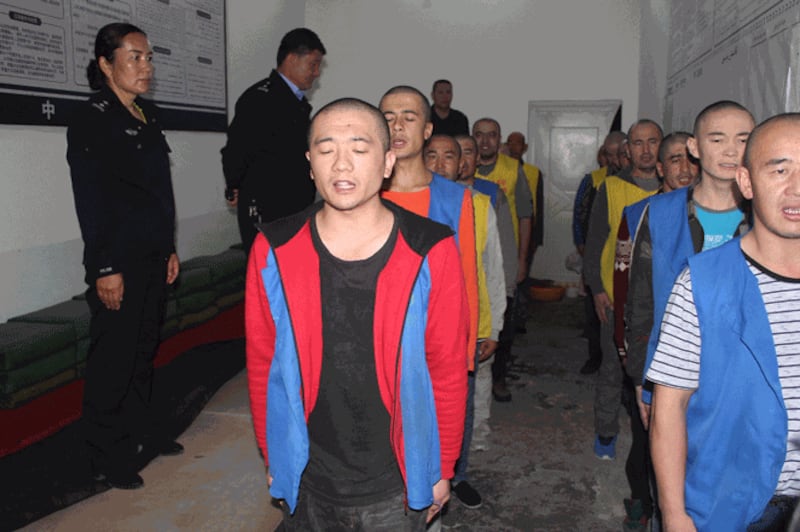Radio Free Asia has provided a unique, international news service for Uyghurs that has exposed China’s creeping persecution of the minority Muslim group in real time, culminating in the eventual U.S. government declaration of a genocide.
RFA Uyghur was in the vanguard on reporting a massive crackdown in the Xinjiang region in the far west of China in 2017 which led to an estimated 1.8 million people confined in internment camps. By speaking directly to sources inside Xinjiang, it documented the repression of Uyghurs as the crackdown began before other news outlets were focusing on the issue.
RFA has also played an important role in promoting Uyghur language and culture as it came under attack, and focused on the human struggles and resilience of Uyghurs to retain their dignity and identity.
Mass detentions begin in 2017
During 2017, as Uyghurs faced growing pressure from Chinese authorities in Xinjiang, RFA documented the crisis as it happened. The Uyghur service reported on the confiscations of Qurans, forced sampling of Uyghurs’ DNA who had committed no crime, checking of digital devices as surveillance grew evermore intrusive, and the conversion of mosques into propaganda centers.
Then in September, RFA confirmed with police sources that thousands of Uyghurs and other Muslim ethnic minorities were being held in re-education camps without contact with their families under a policy designed to counter “extremism.”

Mass deaths reported in an internment camp
In October 2019, RFA reported that at least 150 detainees had died over a six-month period in just one internment camp in Kuchar County, marking the first confirmation of mass deaths since the camps were introduced in 2017. This information came from a police officer who had served as an administrative assistant at the No. 1 Internment Camp in the Yengisher district.
The report corroborated earlier statements from a former police chief who was himself detained for revealing that possibly more than 200 residents from his township had died in the camps.

Still held at camps despite China claims
Radio Free Asia Uyghur Service revealed during the 2018 to 2020 period that despite Chinese claims that internment camps in Xinjiang had been closed, multiple facilities remained operational, including large camps in Kashgar city and surrounding regions. RFA Uyghur Service reported that thousands of Uyghurs continued to be detained in these facilities without legal process, with officials admitting people were “continuously coming in.” Some of the largest camps, like Yanbulaq School in Kashgar, held thousands of people who were forced to learn Mandarin Chinese and undergo political indoctrination.

US: Genocide against Uyghurs in Xinjiang
On the eve of the first Trump administration’s exit from office in January 2021, Secretary of State Mike Pompeo declared that the U.S. had determined China’s repression of Uyghurs and other mostly Muslim ethnic minorities in Xinjiang, including its use of internment camps and forced sterilizations, amounted to “genocide” and “crimes against humanity.”
The landmark decision was welcomed by Uyghur groups who said it would make it impossible for the international community to ignore the atrocities in Xinjiang.

Xinjiang police files
RFA provided crucial coverage of the Xinjiang Police Files leak, documenting how these official Chinese records revealed detailed information about thousands of Uyghur detainees. The files included clear images and information about camp detainees arrested in 2018 in Kashgar Kona Sheher county, with the youngest being just 14 years old and the oldest 73.
RFA interviewed Uyghurs in exile who found images and information about their missing relatives, friends, and former cellmates in the leaked documents, giving many their first confirmation of what had happened to their loved ones.
Stories of Uyghur resilience and success
RFA has reported on the Uyghur diaspora community who have prevailed through adversity and achieved professional success. In the United States, Adalet Sabit described the challenges of raising a young Uyghur daughter who has been separated from her father. Adalet’s husband, Ablimit Abliz, was prevented from leaving China after authorities confiscated his passport.
RFA also spoke to Arfiya Eri, the first person of Uyghur heritage to run as a major party candidate in a Japanese election. Born and raised in Japan, she defined success as “when an individual can live the life they desire freely, following the path they have chosen.”

Edited by RFA Staff.